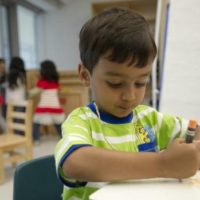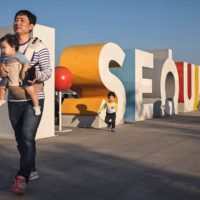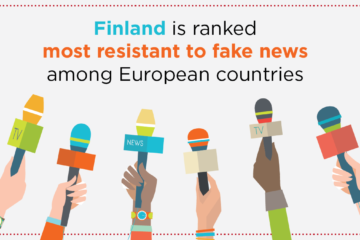Canadian Government Settles Landmark Indigenous Child Welfare Case
The Canadian government reached a record-setting settlement in a lawsuit brought by First Nations groups over decades of mistreatment by the country’s discriminatory child welfare system. The settlement, worth CAN$40 billion (US$31 billion), is the largest in the country’s history. Half of the funds will compensate children who were removed unnecessarily from their families over the past thirty years. The other half will go toward reforms of the child welfare system for First Nation children, with a goal of keeping families together whenever possible. Canada has been coming to terms with its legacy of discrimination against Indigenous people since a Truth and Reconciliation Commission called the removal of Indigenous children from their families over a century “cultural genocide.” Cindy Woodhouse, the Manitoba regional chief at the Assembly of First Nations, said: “First Nations from across Canada have had to work very hard for this day to provide redress for monumental wrongs against First Nations children, wrongs fueled by an inherently biased system.” For more, see The New York Times.

Australia Invests in Early Childhood Education for All

Australia has just launched a nationwide Preschool Reform Agreement to ensure every child has access to 15 hours of high-quality preschool a week, taught by a degree-qualified teacher at an affordable price. The agreement will be funded through a AUS $1.8 billion (US $1.3 billion) investment from the federal government and money from each state and territory that signs onto the plan. The Australian Capital Territory is the latest signatory (see DESE for more information on this); New South Wales, Victoria, Queensland, South Australia, and the Northern Territory have already signed on. Australia also released the National Aboriginal and Torres Strait Islander Early Childhood Strategy, a long-term framework calling for stronger collaboration between jurisdictions and service providers to better serve the needs of young First Nations children. The pilot program will focus on increasing access to high-quality training and professional learning for Indigenous early educators. Read more about the framework at The National Indigenous Times.
Japan Shifts to Digital Textbooks in Schools, Starting With English
Digital textbooks are coming for Japanese students as the country moves away from paper learning materials. The education ministry will start switching to digital this spring for fifth- and sixth-graders, mostly in English. At first, students will still be given the paper standbys so educators can compare learning progress and measure the effectiveness of the digital texts. Additional grades and subjects will come later as the country’s schools shift to fully digital lesson materials by 2024. Read more from The Japan Times.

Korea Sees Big Increase in Fathers Taking Parental Leave

The number of Korean men taking paternity leave jumped more than 20 percent between 2019 and 2020, and for the first time ever, more than one in five parental leave takers are men, according to a new analysis by Statistics Korea. Still, challenges remain to expanding use of leave: many fathers feel that they will be judged negatively at work for taking time off, and the childcare allowance provided by the government during leave does not always match full wages making it harder for parents who are less well-off to feel comfortable taking time away from work. Read more in The Korea Times.




